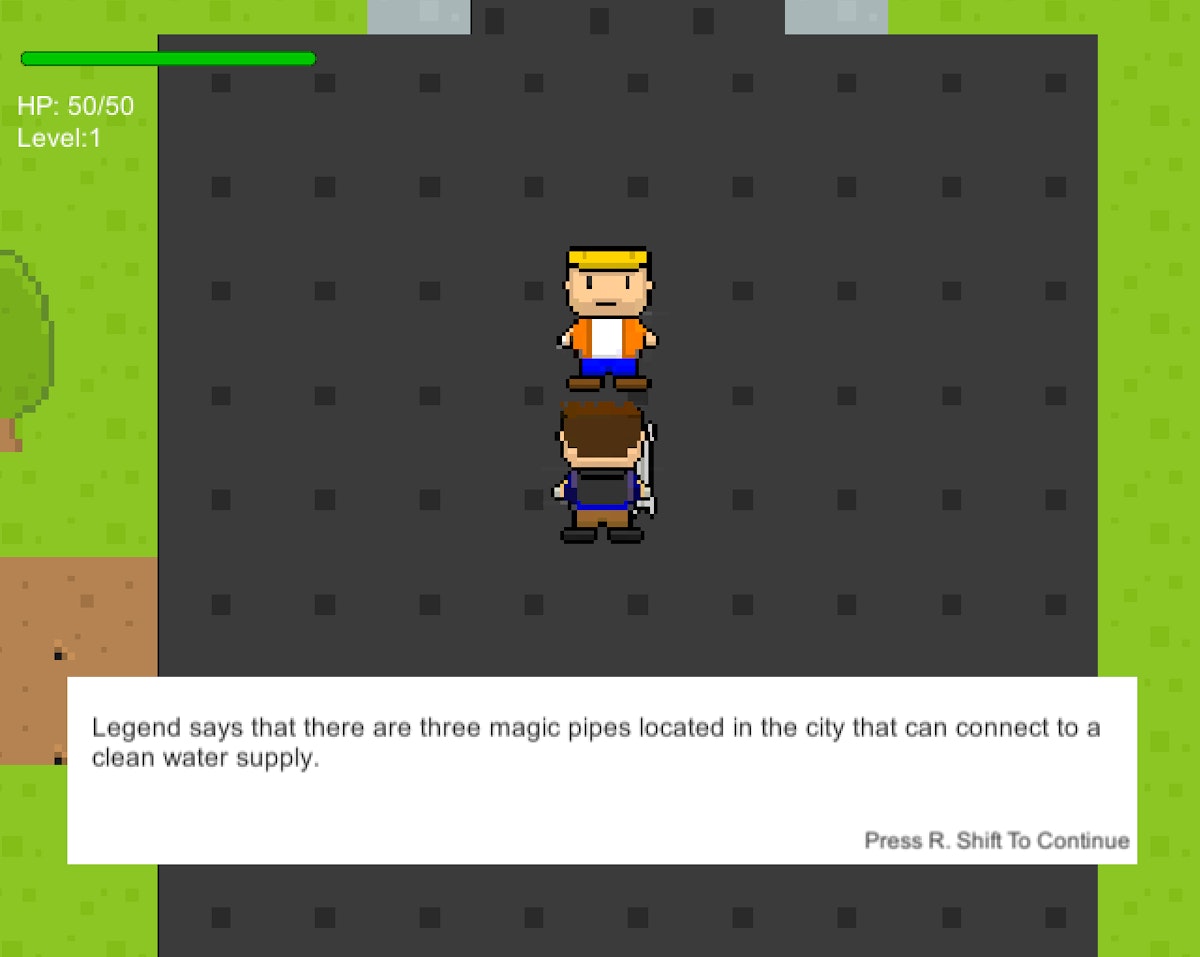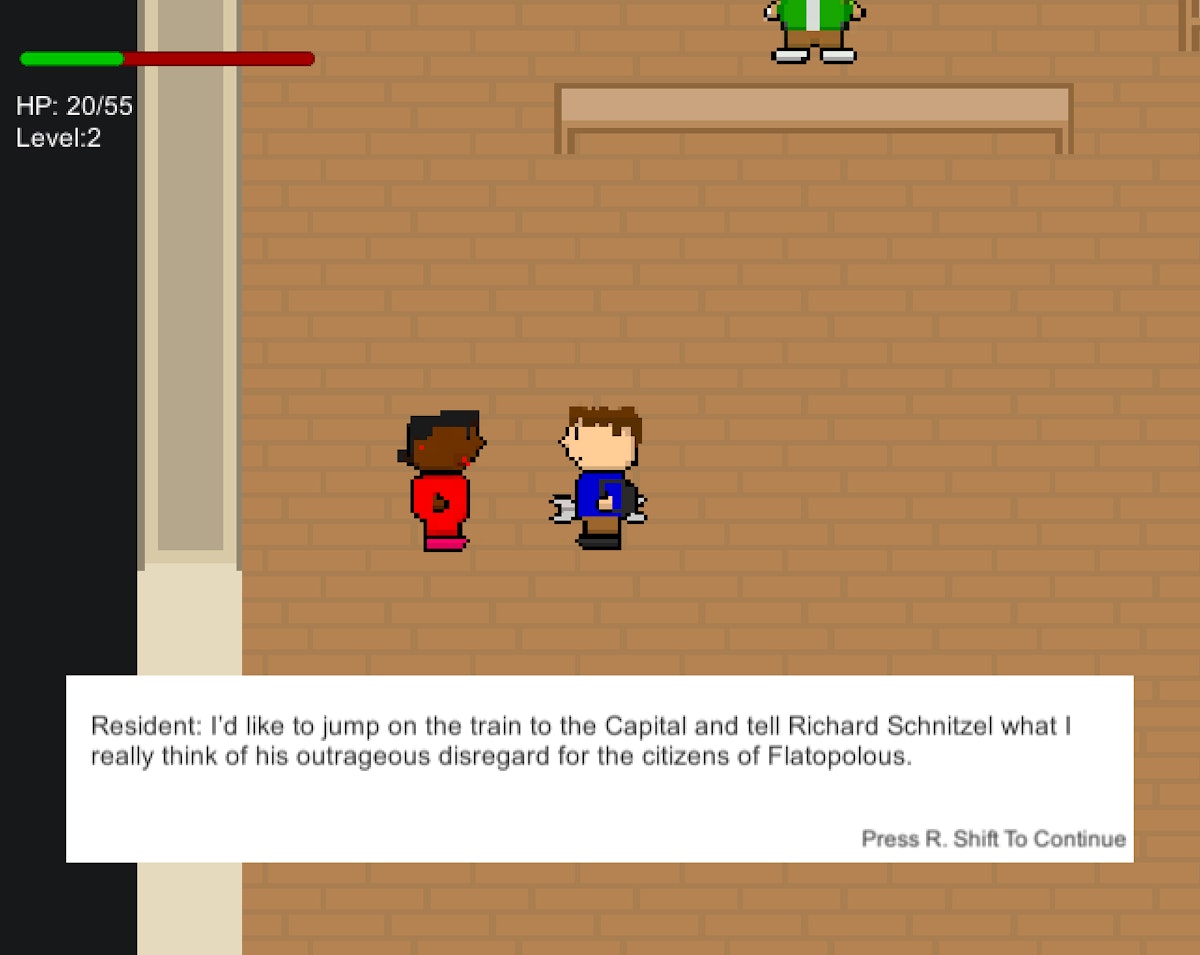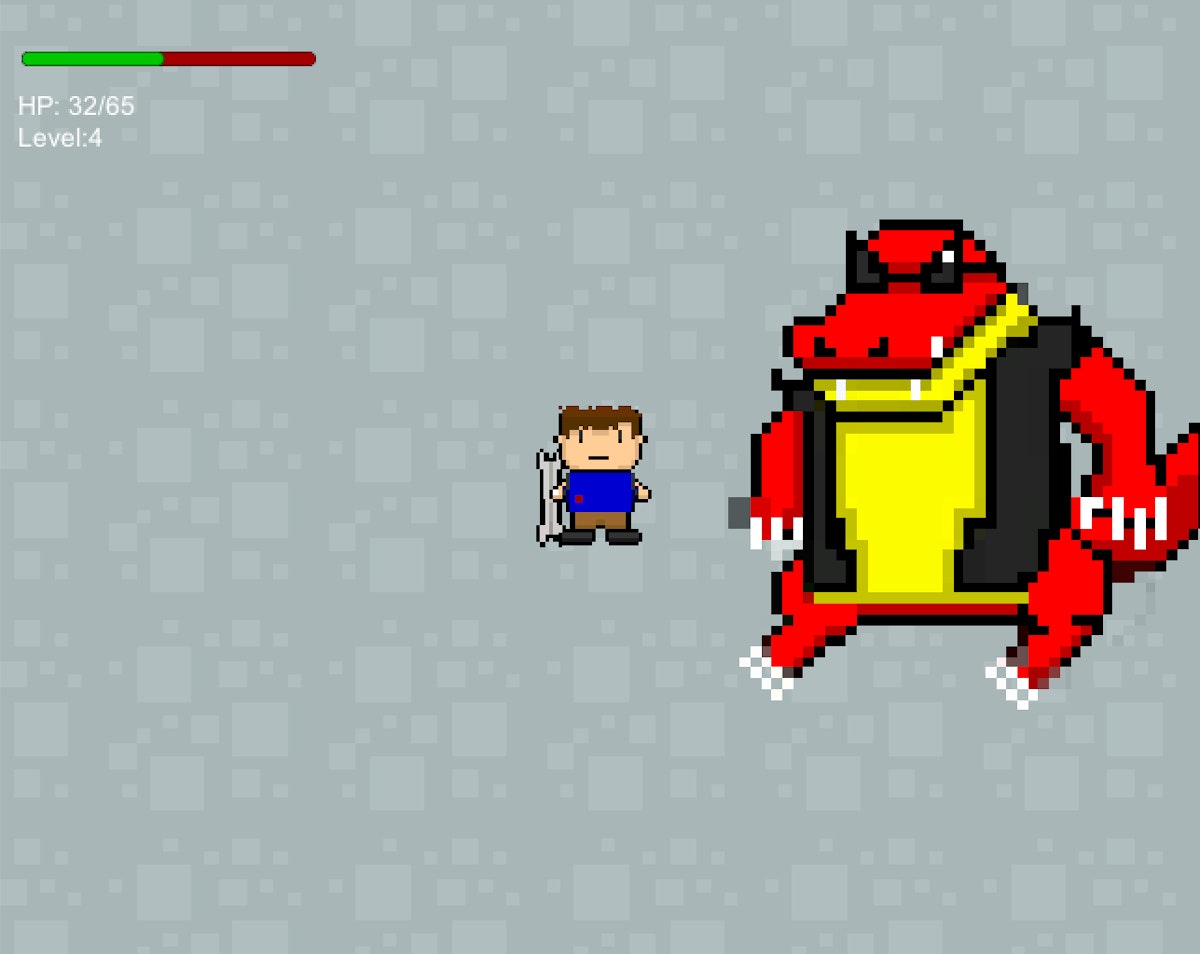Student Spotlight: Josh Brown Responds to Flint Water Crisis via Video Game
For Josh Brown (BA ‘19), the Flint Water Crisis hit close to home. Growing up just 15-minutes away from Flint in Grand Blanc, Brown began his undergraduate education at U-M Flint before transfering to the Stamps School of Art & Design.
“I was at U-M Flint when the water crisis story became national news,” Brown said. “The campus was on a seperate water system, but still there were journalists lining up outside of our campus buildings wanting to talk to us. It was unavoidable.”
A lifelong gamer, Brown wondered if video games could be a way to spark conversations about community impact of water crisis in places like Flint. “There’s a trend for training modules now to include video games,” Brown said. “The military, nurses, and others are using video game simulations and gamification in their trainings. I wanted to see if I could make a fun game that could still shed light on a serious issue.”

During the summer of 2018, Brown committed himself to the creation of a water crisis video game under the mentorship of Stamps professors Marianetta Porter and Cynthia Pachikara. In addition to teaching himself how to code and build a video game on the Unity platform using a free, online role-playing training, Brown met with his faculty mentors bi-weekly over the course of the summer to work on best practices in infusing research into his video game.
Porter and Pachikara encouraged Brown to consider how a video game might provide more than entertainment, prompting him to research the Flint water crisis from a variety of angles: its political players, health ramifications, environmental consequences, and the myriad of ways that it has affected residents on a daily basis. Brown used a variety of research methodologies including reading reports and articles about the crisis, data collection, observation, and mapping strategies. He also investigated narrative structures that might serve as a template to tell his video story.
“Josh’s deep dive and commitment to the project has resulted in a compelling interactive game that not only highlights the trauma of the water crisis, but uses irony and humor to build the imaginary world of ‘Flatopolos’ and offhandedly point to key officials responsible for its dire consequences,” said Professor Porter. “The result is a game that is both entertaining and challenging to play, but also informs and educates the public.”

In addition to traditional research methods, Porter and Pachikara encouraged Brown to gain first-hand with a water shut-off by challenging him to a role playing exercise geared to illuminate a deeper, empathy-driven understanding of the crisis: Brown used bottled water exclusively for three days.
“It was a real challenge,” Brown said. “You don’t realize how tedious it is to live on bottled water until you live it. Shaving was impossible. And lugging giant cartons of Ice Mountain up to your apartment is harder than you think it’s going to be -- that element made it into the game.”
Brown is working towards the launch of The Crisis, an all-ages video game that takes place in the city of Flatopolous. Stylistically inspired by Nintendo’s EarthBound, the player moves through the city on a quest to find three magic pipes, interacting with the residents of Flatopolous as he goes. Through these interactions, the player learns about many of the environmental, social, and political ways that the water crisis impacts the community. The “game monsters” of The Crisis include common enemies “The Alligangsters” and the primary antagonist, Governor Richard Schnitzel.

“My dream has always been to be a game designer for Nintendo, but I'd be happy to work for any of the major publishers in the video game industry,” Brown said. “Ultimately though, I just want people to play this game, to build deeper awareness around how water crises like the one in Flint have an impact on the people in a community. It’s more than just a headline. It’s people’s lives.”